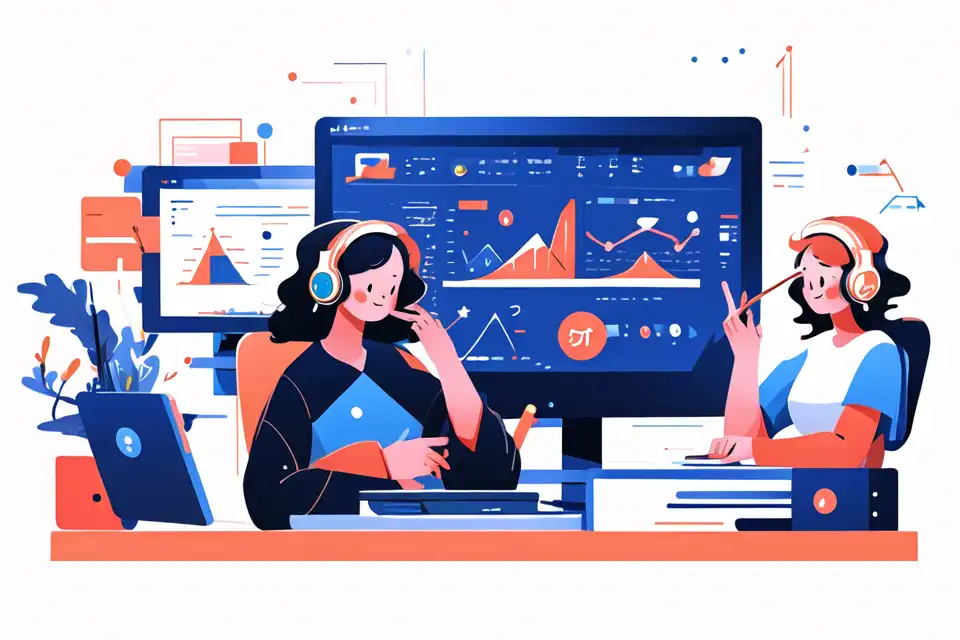Fear Of Missing Out (Fomo)
Enhance your understanding of Fear Of Missing Out (Fomo) and optimize your operations for success with Lark's solutions tailored for your specific needs in the retail industry.
Try Lark for Free
Use Lark Base to transform your retail business.
Executive summary
In this essential guide for 2024, we will explore the key impacts and trends of Fear Of Missing Out (FOMO) in retail. We will also discuss the critical implementation considerations and potential benefits that retailers should be aware of when incorporating FOMO into their strategies.
Understanding fear of missing out (fomo) in modern retail
Definition and Significance in Retail Context
Fear Of Missing Out (FOMO) refers to the anxiety or apprehension that individuals feel when they believe they are missing out on something exciting or valuable. In the retail context, FOMO can be a powerful motivator for consumers to make purchases or take advantage of limited-time offers.
Emerging Trends and Common Misconceptions
As retail continues to evolve, new trends related to FOMO are emerging. Retailers are finding innovative ways to leverage FOMO to drive sales and enhance customer engagement. However, there are also common misconceptions about FOMO that need to be addressed in order to fully harness its potential in the retail ecosystem.
Role of Fear Of Missing Out (FOMO) in the Retail Ecosystem
FOMO plays a crucial role in the retail ecosystem by influencing consumer behavior and shaping their purchase decisions. By understanding and effectively leveraging FOMO, retailers can create a sense of urgency and excitement that drives sales and customer loyalty.
Implementation and best practices
In this section, we will explore the best practices for integrating FOMO into retail operations in 2024. We will discuss how retailers can overcome challenges in adoption for various retail formats and highlight key technologies and tools that can enhance the effectiveness of FOMO strategies.
Learn more about Lark x Retail solutions
Roi and performance metrics
Understanding the return on investment (ROI) and measuring the performance of FOMO strategies is essential for retailers. In this section, we will provide projections for retail ROI and key performance indicators (KPIs) in 2024. We will also discuss how to measure the impact of FOMO on sales, efficiency, and customer loyalty.
Omnichannel and customer experience
Creating a seamless and consistent customer experience across different touchpoints is crucial in today's retail landscape. In this section, we will explore how retailers can connect in-store, online, and mobile FOMO processes to enhance the customer experience. We will also discuss personalization strategies powered by FOMO that can deepen customer engagement.
Learn more about Lark x Retail solutions
Operational efficiency
Efficient supply chain and inventory management are vital for retail success. In this section, we will discuss how retailers can optimize their supply chain and inventory management processes to leverage FOMO effectively. We will also explore workforce management and training considerations for FOMO implementation, as well as data security and compliance measures.
Future-proofing retail strategy
As technology continues to advance and consumer preferences evolve, retailers must stay ahead of the curve to remain competitive. In this section, we will explore emerging technologies and trends for 2024 and beyond that can future-proof retail strategies. We will also discuss long-term strategies for maintaining a competitive advantage and preparing for future challenges and opportunities.
Learn more about Lark x Retail solutions
Action plan for 2024
To help retailers effectively implement FOMO strategies, we will provide a step-by-step guide in this section. We will outline the necessary steps to optimize FOMO in retail, including a prioritization framework and key performance indicators for tracking success. Additionally, we will provide resources and tools for implementation and ongoing support.
Conclusion and key takeaways
In conclusion, Fear Of Missing Out (FOMO) can have a significant impact on retail success in 2024. By understanding and leveraging FOMO effectively, retailers can create a sense of urgency and excitement that drives sales and enhances the customer experience. It is essential for retailers to stay informed about emerging trends, implement best practices, and future-proof their strategies to remain competitive in the ever-evolving retail landscape.
Learn more about Lark x Retail solutions
Do's and don'ts for fear of missing out (fomo) in retail
| Do's | Don'ts |
|---|---|
| - Create a sense of urgency through limited-time offers and exclusive deals. | - Overwhelm customers with too many FOMO-triggering messages or notifications. |
| - Leverage social proof and user-generated content to amplify FOMO. | - Manipulate or deceive customers with false scarcity or urgency. |
| - Use personalized recommendations and targeted messaging to enhance FOMO. | - Neglect the importance of building trust and credibility with customers. |
| - Continuously monitor and analyze data to optimize FOMO strategies. | - Rely solely on FOMO without considering other marketing and sales tactics. |
Learn more about Lark x Retail solutions
Use Lark Base to transform your retail business.
